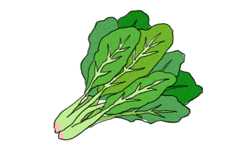Folic acid

Folate (of which Folic Acid is the is synthetic form) is involved in metabolizing several amino acids in the body. Like Vitamin B12, folate is involved in cell division and DNA synthesis. Foods such as leafy vegetables and liver are high in folate, but in the case of vegetables, the folate may be lost when boiled, resulting in lower intake.
The Ministry of Health, Labour and Welfare (MHLW) recommends that women who are planning to become pregnant and women who may become pregnant take 0.4mg (400μg) of folic acid per day as supplements in addition to folate from meals to reduce the risk of neural tube defects.
The MHLW also recommends that pregnant women take 240μg per day from supplements in addition to the recommended 240μg per day from meals. For breastfeeding mothers, it recommends 100μg per day from supplements.
(From the MHLW notice regarding the promotion of appropriate provision of information concerning folate intake for women of childbearing age to reduce the risk of neural tube defects, December 28, 2000)
Folate comes in two forms; pteroyl polyglutamate found in natural food sources, and pteroyl monoglutamate in supplements. The effect of pteroyl monoglutamate is twice as high as that of pteroyl polyglutamate, and therefore an intake of 0.4mg folic acid supplement is equivalent to eating food containing 0.8mg of folate.
A neural tube defect is a congenital disease often associated with insufficient intake of folate during early pregnancy.
In this disease, part of the neural tube that eventually develops into the brain and spine is blocked, preventing the normal development of the brain or spine.
Anencephaly and spina bifida are two primary forms of the disease.
For women who are planning to become pregnant or women who may become pregnant, we recommend taking folate before becoming pregnant.
As the name implies, high amounts of folate (from folium, Latin for "leaf") are found in green leafy vegetables. Spinach, mustard greens, takana mustard greens, garland chrysanthemum, broccoli, asparagus, Chinese cabbage, lettuce, cauliflower, royal fern, and others are rich in folate. In addition, sweet potato, Japanese pumpkin, soybeans, broad beans, fermented soybeans, amanori seaweed, fruits such as strawberries and natsumikan, and others also contain a lot of folate.
The MHLW recommends taking 0.4mg (400μg) of folic acid per day in the form of supplements, etc. in addition to folate from meals.






